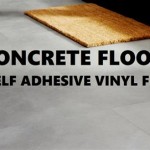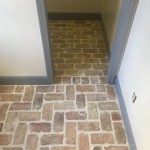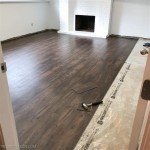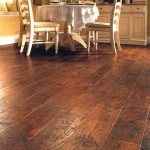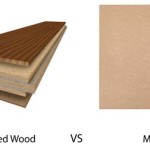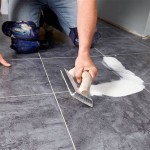Can You Use Tile Adhesive For Vinyl Flooring In Bathroom?
Vinyl flooring has become a popular choice for bathroom renovations due to its water resistance, durability, and affordability. While traditional tile adhesive is commonly used for ceramic and porcelain tiles, the suitability of using it for vinyl flooring in a bathroom setting is a question that often arises. This article aims to provide a comprehensive understanding of the factors to consider when choosing an adhesive for vinyl flooring in a bathroom.
Understanding the Properties of Tile Adhesive and Vinyl Flooring
Tile adhesive is specifically formulated to provide a strong bond for ceramic and porcelain tiles. These adhesives are typically designed to withstand the weight of the tiles, the water exposure, and the stresses of foot traffic. Vinyl flooring, on the other hand, is a flexible material that expands and contracts with changes in temperature. This flexibility can lead to compatibility issues with rigid tile adhesives.
Tile adhesives are designed to create a strong, inflexible bond. This strength is necessary to support the weight of ceramic and porcelain tiles. However, this rigidity can be problematic for vinyl flooring. The expansion and contraction of vinyl flooring due to temperature changes can put stress on the adhesive bond, potentially leading to cracking or delamination. The inflexibility of tile adhesive can also impede the natural movement of the vinyl flooring, creating tension and potentially affecting its longevity.
Recommended Adhesives for Vinyl Flooring in Bathrooms
For optimal performance and longevity, it is recommended to use an adhesive specifically designed for vinyl flooring. These adhesives are formulated to be flexible and allow for the natural movement of the vinyl, ensuring a secure bond that withstands the stresses of a bathroom environment.
Vinyl flooring adhesives are available in various types, including:
- Water-based adhesives: These adhesives are generally considered safe for indoor applications and are known for their low VOC emissions. They typically have a shorter drying time compared to solvent-based adhesives.
- Solvent-based adhesives: These adhesives offer stronger bonding properties and can be suitable for areas with high moisture levels or heavy traffic. However, they are typically accompanied by a stronger odor and require longer drying times.
- Pressure-sensitive adhesives: This type of adhesive works by applying pressure to activate the bonding process. They are often available in pre-applied sheets, making installation faster and more straightforward.
The specific type of adhesive best suited for your project will depend on factors such as the type of vinyl flooring, the subfloor material, and the level of moisture in the bathroom environment.
Potential Issues of Using Tile Adhesive for Vinyl Flooring
Using tile adhesive for vinyl flooring can lead to several potential issues:
1. Delamination and Cracking
The rigid nature of tile adhesive can cause the vinyl flooring to crack or delaminate over time. As the vinyl expands and contracts with temperature fluctuations, the inflexible adhesive cannot accommodate this movement, leading to stress on the bond. The result can be cracks in the vinyl flooring, damage to the adhesive layer, or even complete separation of the flooring from the subfloor.
2. Difficulty in Removal
Tile adhesive is designed to be highly durable and resistant to removal. If it is used for vinyl flooring and you decide to replace it, removing the adhesive can be a challenging and time-consuming process, potentially damaging the subfloor.
3. Reduced Floor Life
Using tile adhesive for vinyl flooring can lead to premature wear and tear. The inflexible bond can restrict the natural movement of the vinyl, causing stress on the flooring material itself. This can result in damage to the vinyl, such as cracking, buckling, or warping, ultimately shortening its lifespan.
While there may be instances where using tile adhesive for vinyl flooring seems convenient, it is crucial to understand the potential consequences. It is generally recommended to choose an adhesive that is specifically designed for vinyl flooring to ensure a secure, long-lasting installation.

How To Install Vinyl Plank Flooring In A Bathroom Fixthisbuildthat

How To Install L And Stick Vinyl Flooring Al Friendly Tiera Lovelle

Do You Need To Glue Sheet Vinyl Flooring A Guide Installation

How To Tile Over Linoleum Floors Correctly

Install L And Stick Vinyl Floor Planks In The Bathroom More To Mrs E

How To Lay Sheet Vinyl Flooring

Should You Tile Over Vinyl Flooring Builddirect

Waterproof Vinyl Flooring The Bathroom Showroom

Glue Down Vinyl Self Adhesive Flooring Leader Floors

Diy Grouted Vinyl Floor Tiles Show Off Decorating And Home Improvement Blogdiy Blog
See Also

